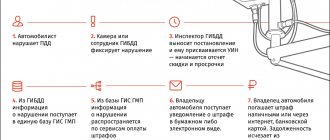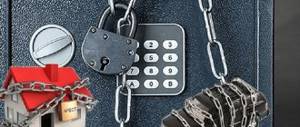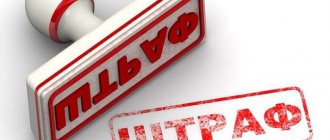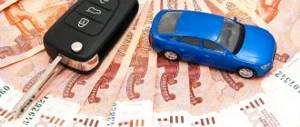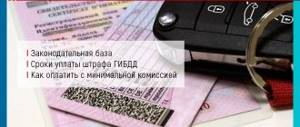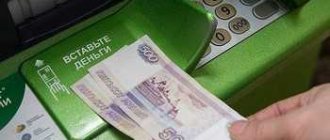Checking and paying traffic fines50% discount
We are checking information about fines, please wait a few seconds
- How does the traffic police find out about payment?
- How to find out that the fine has reached the bailiffs
- Why a paid fine can go to the bailiffs
- What to do if the resolution was transferred to the FSSP
- How to prove that the fine has already been paid
- What if the bailiffs wrote off the fine twice?
- Where to pay a fine if it has not been paid
- How to pay an overdue fine
- What if we leave it as is?
- How to avoid this situation
How does the traffic police find out about payment?
Information about fines is stored in the State Information System on State and Municipal Payments (GIS GMP). The payment data does not immediately reach the treasury, but goes through several stages:
- The inspector issues a fine.
- The information goes into the GIS GMP.
- From there it is taken by services to pay fines, such as “Traffic Police Fines”.
- The driver receives a notification by mail and a paper letter in the mailbox.
- The driver pays off the debt.
- The bank transmits information about payment for government services to the GIS GMP.
- Information about the fine disappears from the GIS GMP database.
If the driver has not paid the fine or paid, but the payment was not included in the database by mistake, the traffic police inspector will transmit information about the fine to the FSSP.
If an error occurs when uploading data and the GIS GMP does not see the payment, the case will go to the bailiffs
Do bailiffs have the right to withdraw money towards a fine in 2021?
Yes they can. A fine for non-compliance with traffic rules is an administrative offense. He is subject to Part 5 of Art. 32.2 Code of Administrative Offences. According to this regulatory act, the FSSP receives a resolution to collect an unpaid fine from the driver by a court decision. The trial takes place after the filing of a statement of claim from the traffic police. In this case, the driver must be notified of the upcoming trial.
If the letter or message about the upcoming trial does not reach the driver, the case is considered without the offender. The court decides to collect a fine from the driver. His decision comes into force 30 days from the date of announcement. The traffic police receives a writ of execution, which is transferred to the FSSP.
Bailiffs begin the process of collecting a fine by force. They have the right to seize the property and funds of the debtor, according to Art. 68 Federal Law No. 229. If the driver does not pay the fine within 60 days, the FSSP will issue a special order to collect funds from all financial institutions (banks). They are obliged to write off available funds from the debtor’s account to pay off the debt.
However, not all drivers lose money from their plastic cards, even several months after the offense. This is due to high turnover in the traffic police. The civil service does not always have time to process all protocols of administrative offenses and send them to the court. For a large number of fines, the deadline for filing a claim expires and they expire. However, this does not happen often.
You can view debts on fines and other penalties on the FSSP website. It displays already considered administrative offenses for which enforcement proceedings are ongoing. The presence of the fines themselves can be seen on the traffic police website.
How to find out that the fine has reached the bailiffs
If the violator does not challenge the fine within 10 days from the date of the decision, the document comes into force. If you don’t pay, after another 60 days the case will be transferred to the bailiffs. The FSSP officer will issue a decision on enforcement proceedings and send the document to the driver. Here's how to find out what's wrong with the bailiffs.
Check with the service. Open the main page of “Traffic Police Fines” and fill in the car information. You will see if there is any debt.
Check charges from the card. People often find out about the fine when the bailiffs have already withdrawn money from the account. View your spending history in your banking app or request a statement from your bank.
Check your mailbox. The bailiffs send the order by registered mail via Russian Post.
Get notified. All user debts are visible on the State Services website. The service sends notifications by email.
Check on the FSSP website. You can find out whether the case has reached the bailiffs on the FSSP website - using passport data.
After the FSSP officer issues a decision on enforcement proceedings, the violator has 5 days to pay the traffic police fine. If the driver has not done this, the bailiff usually imposes an additional enforcement fee - 7% of the debt amount, at least 1000 rubles.
Deadline for collection of overdue debts
The statute of limitations for fines issued by bailiffs is regulated by Article No. 31.9 Part 1 of the Code of Administrative Offenses of the Russian Federation and is two years from the moment the decision on an administrative offense comes into force. After this period, no forced collection of the fine amount is made. However, this legal requirement should not be considered as an opportunity to evade punishment, since FSSP employees will not sit idly by for two years. They use all legal means to fulfill the requirements of the ruling.
After the decision on enforcement proceedings is issued in accordance with Article No. 30, Part 12 of Federal Law No. 229-F3 of October 2, 2007, the debtor is given 5 days to voluntarily repay the entire amount of the debt. As you already know, the period for collecting a traffic police fine by bailiffs is two years. If the debtor fails to act, the bailiff takes measures to forcibly collect the amount of the fine.
FSSP officers seize the defaulter’s bank accounts, sources of income or securities, and may also seize property and put it up for sale.
It should be noted that voluntary repayment of the fine is a legal basis not to pay the enforcement fee to the bailiffs. Currently, its size is 7% of the fine, but not less than 1000 rubles.
Why a paid fine can go to the bailiffs
The driver did not pay the fine for 70 days. If the fine is not paid on time, the case will be transferred to the bailiffs. Check the date of the traffic police decision.
The payer made a mistake in the order number. A driver or bank employee could accidentally pay a fine using incorrect details. To cancel the payment and send a new one to the correct number, contact your bank. If the payment has already been sent to the department, you will have to contact the traffic police with an application for a refund. We wrote about this in detail in another article.
The bank did not transmit information about the payment to the GIS GMP. Banks are required to transmit payment information within 24 hours. Contact the bank or service through which you paid the fine. If the bank claims that the data was transferred, contact the traffic police.
The bank transferred information about the payment to the GIS GMP without indicating a unique accrual identifier (UIN). This happens if the payment was accepted by the operator and not the computer. Contact your bank with your payment receipt.
The traffic police indicated incorrect details in the resolution. Wait a day from the date of payment. If during the check the fine is still registered with you, contact the traffic police.
There was a failure in the GIS GMP. When transferring data between the bank, the database and the traffic police, a normal computer failure may occur. The Federal Treasury recommends checking the payment status the next day after the driver pays the fine. This can be done on the State Services or on the main “Traffic Police Fines” page. If the status has not changed to “paid” within 24 hours, contact the bank - it will request information from the GIS GMP.
What should I do if I paid a fine, but it appears in the database on the traffic police website?
When a citizen repays a debt, the payment goes through three stages:
- Using the specified details, the required amount is deposited.
- The bank transmits payment data to the GIS GMP.
- The Treasury transmits the data to the traffic police.
Often, a paid fine is listed as unpaid if a failure occurs at any of these stages. It happens that a person paid the required amount through a little-known bank. This may cause the payment to freeze and not reach the recipient.
To ensure that the payment is received according to the specified details, we advise you to make payments only in trusted banks and payment systems. The service on our website also provides only those methods that will 100% transfer payment data to the GIS GMP.
Part 8 of Article 32.2 of the Code of Administrative Offenses of the Russian Federation, we inform us that after paying an administrative fine, the credit institution is obliged to send your payment to the State Information System on State and Municipal Payments.
A bank or other credit organization, a federal postal service organization, a payment agent engaged in accepting payments from individuals, or a bank payment agent (subagent) operating in accordance with the Federal Law “On the National Payment System”, by which the amount of the administrative fine is paid, are required to send information about the payment of an administrative fine to the State Information System on state and municipal payments in the manner and within the time limits provided for by Federal Law No. 210-FZ of July 27, 2010 “On the organization of the provision of state and municipal services.”
Part 8 of Article 32.2 of the Code of Administrative Offenses of the Russian Federation
Based on this, the fine may not be paid if the transfer of data from the treasury to the traffic police fails. And since there is no supporting data on debt repayment, the fine has not been removed from the database.
To remove the fine, you need to take the paid receipt and contact the traffic police at your place of residence or place of registration. Employees will enter the appropriate data and the debt will disappear. When the payment was made via the Internet, you need to find the completed transfer in the history of card transactions, and then print out a document confirming the payment.
When the payment was made through the single portal of State Services, but during the check you have an outstanding debt, you should contact the bank and, in accordance with clause 2 of Article 7.1 No. 210-FZ and clause 4 of Article 21.3 No. 210-FZ, ask to upload information about payment in GIS GMP. If the bank claims that the payment has been sent, then you should contact the appropriate department indicated in the fine order.
What to do if the resolution was transferred to the FSSP
Make sure the bailiffs have the matter. In order not to waste time on further steps and waiting for a response from the department, check that the matter is with the FSSP. This can be done on the service website.
On the FSSP website, the debt is checked by passport data or by resolution number - in the form it is “Search by ID number”
Collect evidence of payment of the fine. A bank receipt with a stamp of payment is almost always enough. If this document is not enough for the bailiffs, ask the traffic police for a certificate of no fines - this can be done through the State Services.
Appeal the decision of the FSSP. If the bailiffs have begun work on collection, the driver can still challenge the enforcement proceedings regarding the traffic police fine. You can make complaints on the FSSP website. The complaint will be considered within 30 days from the date of registration of the complaint.
How to prove that the fine has already been paid and stop the proceedings
Provide a certificate of no fines. You can request it on the State Services website.
Provide a payment receipt. To do this, you need to make an appointment with the bailiff who is handling your case. The name of the bailiff and telephone number of the department are indicated in the resolution.
Provide a certificate of absence of office work. It may happen that the bailiff will not have enough of the above documents or there will be a failure in the system. In this case, the complaint may not be satisfied. To convince the service employee, the driver can obtain a certificate from the State Services stating that there are no cases filed against him.
What if the bailiffs lifted the fine without notice?
The opening of enforcement proceedings, collection of enforcement fees, arrest and debiting of funds from the FSSP account - all this is accompanied by resolutions of the executor, which are necessarily sent to the debtor driver at the address specified in the resolution. This is a kind of warning about a possible recovery.
If the driver for some reason did not receive the documents, including due to the incorrect address being indicated in the decision, officials are not responsible for this.
What if the bailiffs wrote off the fine twice?
There is an explanation on this matter on the FSSP website. In short: if the bailiffs debited money from the account for the second time, most likely the bank did not transmit the payment data to the GIS GMP.
Get a receipt from the bank. The driver must obtain a payment receipt from the bank.
Collect documents. Take with you receipts for payment of both fines: from the traffic police and the FSSP. You will also need copies of the payment receipt and a certificate stating that there are no unpaid traffic fines.
Submit a complaint. Bailiffs accept complaints in writing. The name and telephone number of the bailiff are indicated on the order. If you don’t have a resolution, contact the regional bailiff service.
If the money is not returned or continues to be written off, complain to the bailiff. A citizen has the right to write a statement so that the FSSP checks the actions of a particular bailiff.
The bailiffs again collected the fine, what should I do?
The activities of bailiffs are regulated by Federal Law No. 229 “On Enforcement Proceedings”. According to its provisions, a citizen can appeal against the actions or inaction of performers in a situation where his rights are violated.
If the violator is again charged the paid fine, then the actions of the bailiff should be appealed. An application may be submitted to one of the following authorities:
- to the bailiff service on the basis of subordination;
- to a judicial institution;
- to the prosecutor's office.
An attempt to collect a paid fine again is usually contested by a senior bailiff . Through him, the issue is resolved in a short time. If it is impossible to resolve the conflict situation through the SSP, they turn to a judicial institution. Together with general documents, the results of the appeal are submitted to the senior bailiff.
The prosecutor's office is contacted with a complaint against the bailiff if his actions are unlawful. The threat to the health and life of the debtor or members of his family is taken into account. Actions to recover the paid fine from the offender’s account rarely allow for such situations, and therefore it is more urgent to go to court or to the SSP.
Consultation with a lawyer and consideration of the situation individually will allow you to identify those steps that will quickly appeal the attempt to collect the paid fine a second time. Use the help of a lawyer on our website.
Traffic police fine
The question often becomes urgent for motorists: what to do if bailiffs have repeatedly collected a traffic fine - how to get the money back? To determine the course of action, you should understand how such a situation arises :
- the driver receives an order to pay a fine for an administrative offense;
- the amount is paid on time, but as a result of a technical error or other reasons does not mark the debt as repaid;
- upon expiration of the period for voluntary repayment, the fine becomes a debt, information on it is transferred to the bailiff;
- the bailiff does not have information about payment, only an order to collect the debt, on the basis of which he gains access to the offender’s accounts and withholds the required amount;
- the driver receives a notification about the repeated withdrawal of funds to pay the debt.
The situation often arises when the driver pays the fine after the established period, when the documents have already been sent to the SSP. The paid fine is not recorded by the bailiff, and therefore he collects it again.
Penalty for late loan
The paid fine for late loan is written off again according to the same principle as the debt to the traffic police. An attempt to collect money can only be countered by notifying you of payment in cash. If funds have already been collected from the account, then to return them follow the following procedure :
- familiarization with the received notice of write-off, establishment of the fact of repeated collection;
- collection of documentation confirming the originally paid debt - receipts, bank account transaction statements; consultation with a lawyer regarding an appeal;
- filing a complaint or statement of claim indicating the illegality of actions in order to collect the paid debt again.
If a bailiff tries to collect a paid fine through a notice, his actions are challenged both by himself through the provision of evidence, and by the senior bailiff.
Statement of claim
A statement of claim to the court to appeal against the actions of a bailiff is drawn up according to a standard template. When compiling, you should pay attention to the following aspects:
- indication of the judicial authority to which the claim is filed;
- complete information on the plaintiff and defendant - the second is the official who collects the paid debt again;
- the text of the application indicates the legal grounds for the appeal; in the case of a second-paid fine, reference is made to paragraph 11 of Article 70 of the Federal Law No. 229;
- the grounds on which demands for the return of paid funds are put forward are indicated.
A statement of claim to appeal the actions of bailiffs is filed with the district court at the place of work of the bailiff who collected the paid debt.
Where to pay the fine if it has not been paid: traffic police or FSSP
If 70 days have not passed since the date of the decision - only to the traffic police. Information about a fine paid on time remains with the traffic police - it will not be transferred to the FSSP.
If 70 days have passed - only to the FSSP. If, on the basis of a traffic police fine not being paid on time, the bailiffs issued an enforcement fee, you will have to pay the fee and the traffic police fine, but only to the FSSP. After the bailiffs have begun enforcement proceedings, their duty is to collect a fine. The traffic police fines website has already collected information about debts to the FSSP associated with fines - all that remains is to pay.
The FSSP issues a new fine based on the traffic police fine with the resolution number (UIN) at 188. The new number starts at 322. According to this resolution, you now need to pay the overdue traffic fine
How to pay an overdue fine
Pay the traffic police fine and enforcement fee. Check the debt on a service, for example, on “Traffic Police Fines”. If information about the collection of the FSSP is displayed, pay it. There is no need to pay a traffic fine - only FSSP penalties. Our service only shows the FSSP fine, and hides the traffic police fine. This is done so that the user does not have to think about what exactly to pay.
Pay according to the court. The administrative fine that was imposed on the defaulter in court can be verified and paid through State Services.
If there are several fines, the user can only pay those that are at risk of collection. The rest can be repaid later, the main thing is to do it within 70 days
The performance fee is shown separately. If you have questions for the bailiff, ask them by phone
What if we leave it as is?
The traffic police will forward the case to the bailiffs. Inspectors have the right only to remind the driver about unpaid fines and send the case to the bailiffs.
The bailiffs will add an enforcement fee. If the violator does not pay the traffic police fine after he was notified of the enforcement proceedings, the bailiffs may impose a new punishment. Enforcement fee - 7% of the fine amount, minimum 1000 rubles.
The debt will be removed from the account. If the debt is not repaid within this period, the bailiffs have the right to withdraw the amount of the debt from the bank account. It goes like this:
- by decision of the court, a decree for the collection of money is issued in the name of the debtor;
- the bailiff sends a request to the banks about the availability and status of the debtor’s bank accounts;
- the bailiff receives a response from the bank and sends an order to write off the money;
- The bank is obliged to comply with the decision - it transfers the required amount to the FSSP account. If there is not enough money, the bank will send the balance of the debt as soon as the money appears in the account.
They will be sentenced to arrest or forced labor. If you do not pay the FSSP fine on time, the court may impose an administrative arrest for 15 days or compulsory work for up to 50 hours, impose a ban on registration actions - you will not be able to sell the car.
Your license will be suspended. If the amount of collection from the FSSP exceeds 10,000 rubles, the bailiff has the right to suspend the driver’s license until he pays the debt.
The traffic police and the FSSP will draw up a report on the violator on the road. Sometimes employees of the two departments organize raids on the roads to identify debtors. If the inspector finds out that the defaulter has an unpaid fine, he will be issued a report on the spot under Art. 20.25 Code of Administrative Offences. From this moment on, the violator will have 5 days to pay the fines.
How to pay and consequences of non-payment
If the fine was transferred to the bailiffs and enforcement proceedings were initiated, then the debtor can pay the amount of the fine only within the framework of this proceeding. Moreover, in addition to the amount of the fine, he must also pay a certain amount of money for carrying out enforcement actions.
If a debtor evades payment of the fine, he may be held administratively liable as part of enforcement proceedings. In particular, the following administrative measures may be applied to a driver who has not paid a traffic fine:
- ban on traveling abroad;
- administrative arrest;
- compulsory work.
After the fine has been handed over to the bailiff, by decision of the bailiff, all property of the debtor, including bank accounts, is seized. Thus, the debtor cannot carry out any transactions, cash out his funds, etc. If the debtor is officially employed, then his wages are also seized.
If the debtor does not have enough funds, then a seizure is imposed on his property, which can subsequently be confiscated and sold at auction at a fairly low price.
Failure to pay the fine may result in the loss of the debtor's property.
Remember
- The paid fine goes to the bailiffs if a person or computer made a mistake.
- If the decision reaches the bailiffs, you have 10 days to appeal. Please attach a copy of your payment receipt to your application.
- If you do not pay the FSSP fine, department employees can withdraw money from your bank account, revoke your license, prohibit you from selling your car, or arrest the debtor for 15 days.
- You can pay your overdue fine and enforcement fee on our website.
All articles by the author: Evgeniy Lesnov
What can the traffic police limit?
If the fine is handed over to bailiffs, this does not mean that traffic police officers will not use their own methods of influence. According to Part 1 of Article 20.25 of the Code of Administrative Offenses of the Russian Federation, representatives of the traffic police have the right to:
- arrest the offender for up to 15 days;
- impose a double fine;
- involve the offender in compulsory labor for up to 50 hours.
Types of influence such as arrest or compulsory labor are used quite rarely. They may concern active violators with large debts. Most often, the traffic police doubles the fine.
